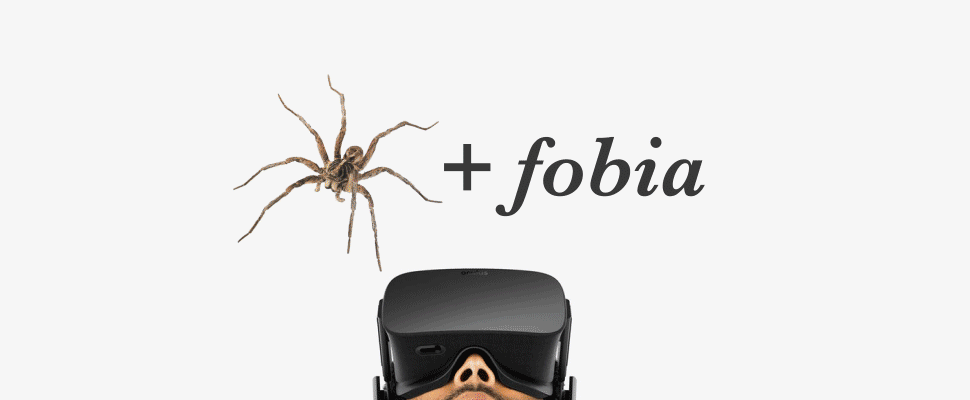Virtual reality could help you to overcome your phobias
Now you can overcome your phobias through to the use of virtual reality, a technology that accounts for the benefits of its implementation for mental health

The use of virtual reality (VR) to try to improve mental health is becoming more and more common. An example is the implementation of this technology as a treatment to overcome phobias. This is because the use of VR, applied to therapies to handle this kind of problems, has better results than normal treatments, as was discovered in a study conducted by Oxford VR and The National Institute of Health Research Oxford Health Biomedical Research Center, and published in the journal The Lancet Psychiatry.
Leer en español: La realidad virtual podría ayudarte a superar tus fobias
The study suggests that people who received a treatment using virtual reality to overcome the phobia of heights "had very large reductions in scores on the three fear-of-heights assessments from baseline to 4 weeks, whereas scores for the control group remained stable." The results show the benefits of this technology to also treat other types of mental health disorders. According to the study, "psychological therapy delivered automatically by a VR coach can produce large clinical benefits. Evidence-based VR treatments have the potential to greatly increase treatment provision for mental health disorders."
In Latin America, countries such as Mexico and Chile have developed immersion systems and initiatives through the use of VR to overcome phobias. In Mexico, for example, "a student of the Instituto Politécnico Nacional (IPN) created Sasufo, an immersive therapeutic system to overcome specific phobias that recreates scenarios with virtual reality, where the patient lives, through the Oculus Rift viewer, his/her fear in a controlled way," is explained in an IPN press release. The fear of darkness and heights are the phobias with which "the platform developed at the Escuela Superior de Cómputo (Escom) works," the statement said.
You can also read: Cure your aviophobia with these 3 flying apps
For its part, in Chile, "the Pontificia Universidad Católica de Chile and Samsung Electronics Chile conducted a virtual reality experiment that managed to determine that this technology contributed to reducing anxiety and nerves caused by self-reported fear of heights and public speaking," explains Issue de Chile. After the experiment, there was a decrease in the levels of anxiety, fear, nerves, and discomfort. In addition, explains the media, "people felt less reluctant to face these same situations in real life, and the two fears had a significant decrease."
What is this type of virtual reality therapy about?
According to a statement from Duke University, about a virtual reality therapy program for phobias, "Virtual Reality Exposure involves exposing the patient to a virtual environment containing the feared stimulus in place of taking the patient IGNORE INTO a real environment or having the patient imagine the stimulus. " The benefits of undergoing VR treatment to overcome a phobia are greater compared to normal therapies. This is because "the real environment can be unpredictable and in-vivo exposure therapy leaves much to chance", in addition, traditional treatments are longer and limited.
For its part, the use of reality to overcome phobias allows a much safer exposure, both physical and mental, to the environment or to the stimulus that generates fear, since people are in a controlled environment. Also, the sessions can be much shorter and this exposure can be done multiple times.
LatinAmerican Post | Diana Rojas Leal
Translated from "La realidad virtual podría ayudarte a superar tus fobias"





